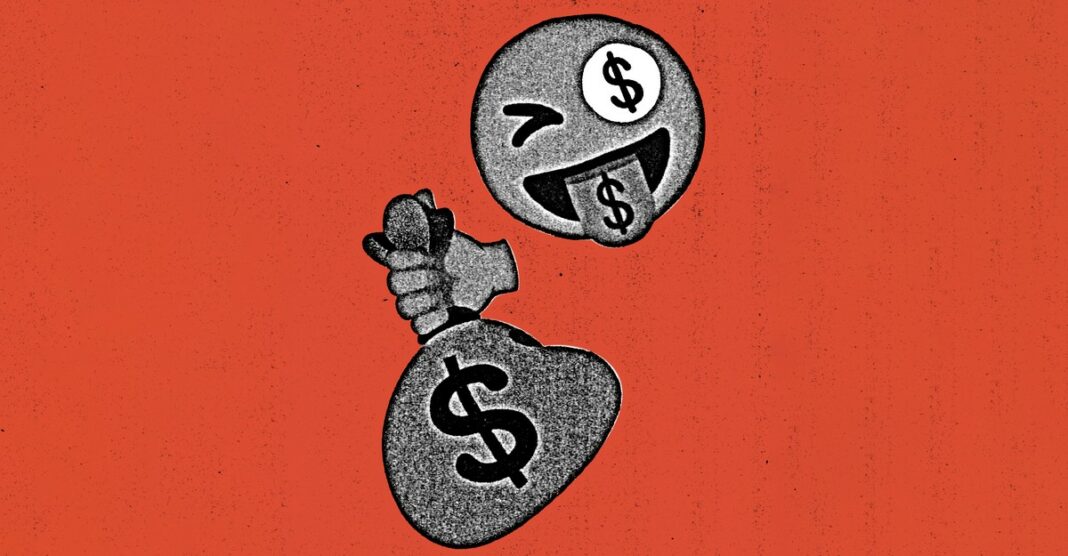How Greed Got Good Again
In recent years, there has been a shift in the perception of greed. What was once considered a negative trait is now being glorified as a driving force for success and innovation. This shift can be attributed to a variety of factors, including changes in societal values and the influence of popular culture. In this article, we will explore how greed got good again and the impact it has had on society.
The Rise of Greed
Historically, greed has been viewed as a vice, associated with negative traits such as selfishness, materialism, and dishonesty. However, in today’s hyper-competitive world, greed is often celebrated as a necessary trait for achieving success. The rise of capitalism and the emphasis on individualism have contributed to this shift in perception.
Capitalism and Greed
Capitalism, with its focus on competition and profit-making, has created a culture that rewards greed. In a capitalist society, individuals are encouraged to prioritize their own self-interest above all else, leading to cutthroat competition and a relentless pursuit of wealth and power. This emphasis on greed as a driver of success has influenced popular culture, with TV shows and movies often portraying ruthless, greedy characters as heroes.
The Impact of Greed
While greed may lead to individual success in some cases, its impact on society as a whole can be detrimental. The relentless pursuit of wealth and power can result in economic inequality, environmental degradation, and social unrest. Greed can also lead to unethical behavior and corruption, as individuals prioritize their own interests over the well-being of others.
Economic Inequality
One of the most significant consequences of greed is economic inequality. When individuals prioritize their own wealth and success above all else, it can lead to a concentration of wealth in the hands of a small elite, while the majority of the population struggles to make ends meet. Economic inequality can have far-reaching consequences, including decreased social mobility, increased crime rates, and political instability.
The Rebranding of Greed
Despite its negative consequences, greed has been rebranded as a positive trait in some circles. The idea that greed is good, popularized by the character Gordon Gekko in the movie „Wall Street,“ has become a mantra for some individuals in the business world. This belief that greed is a driving force for innovation and success has been embraced by some entrepreneurs and investors, leading to a culture that celebrates excess and materialism.
The Cult of Greed
In today’s society, there is a cult of greed that glorifies excess and celebrates those who amass great wealth. The pursuit of material possessions and status symbols has become a symbol of success, with individuals judged by their wealth and possessions rather than their character or accomplishments. This culture of greed can have a corrosive effect on society, promoting selfishness and individualism over community and cooperation.
The Future of Greed
As society grapples with the consequences of greed, there is a growing awareness of the need to redefine success and create a more sustainable and equitable world. While greed may have its place in driving innovation and progress, it must be balanced with compassion, ethics, and a concern for the well-being of others. By reevaluating our values and priorities, we can create a society that rewards cooperation, empathy, and social responsibility.
Conclusion
In conclusion, the rebranding of greed as a positive trait has had a significant impact on society, leading to economic inequality, environmental degradation, and social unrest. While greed may drive individual success in the short term, its long-term consequences can be devastating. It is important for society to reevaluate its values and priorities, and strive for a more compassionate and equitable world.
FAQs
Q: Is greed always a negative trait?
A: While greed can drive individual success in some cases, its impact on society as a whole can be detrimental. It is important to balance greed with compassion and ethical behavior.
Q: What can we do to mitigate the negative effects of greed?
A: By reevaluating our values and priorities, and prioritizing empathy, cooperation, and social responsibility, we can create a more sustainable and equitable society.




